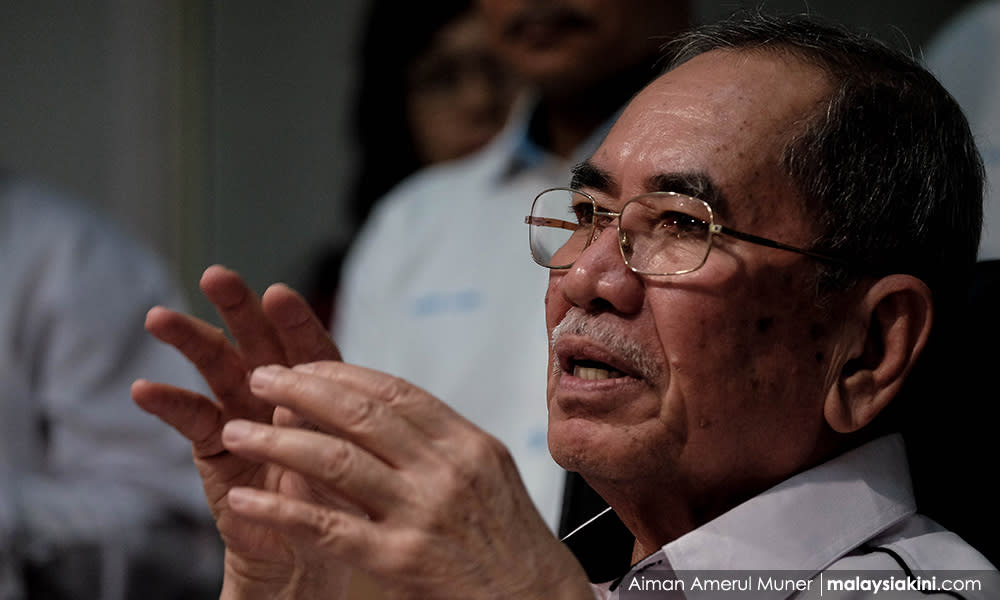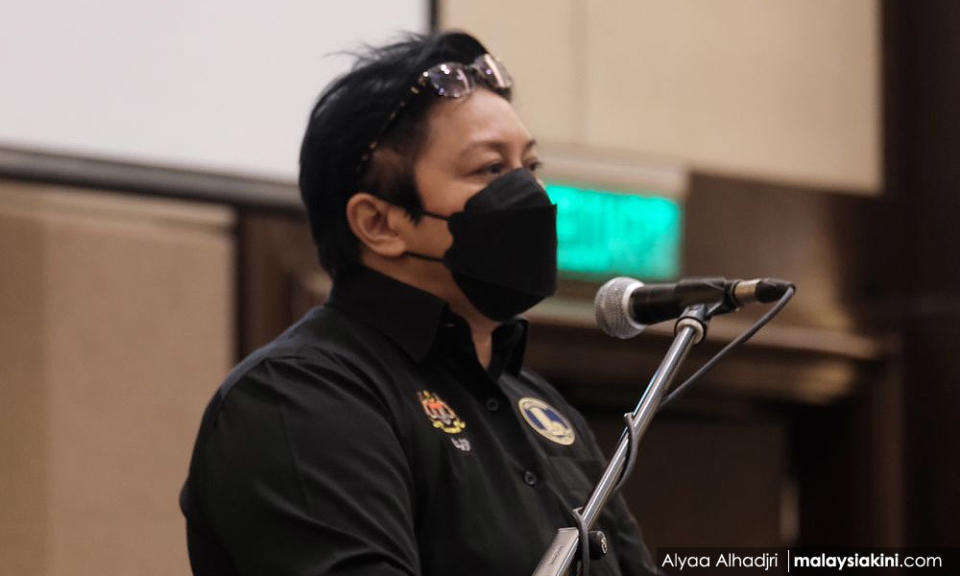'Anti-hopping' bill inches towards reality

Putrajaya will be conducting another round of briefings and consultations onbills designed to discourage elected lawmakers from switching parties and toset term limits for the prime minister.
According to sources, MPs have been invited to attend the briefing by de facto LawMinister Wan Junaidi Tuanku Jaafar (above) on Feb 9 in Parliament.
"We expect to be engaged on policy matters concerning the'anti-party hopping' bill and the bill to limit the primeminister's term to 10 years.
"We also expect to hear proposals on further constitutionalamendments," said an MP who declined to be named.
The MP said the government looks set to table the bills in March.
The engagement session on Feb 9 is believed to be the second after the briefing on Dec 22last year. Since assuming the position of law minister in August last year, WanJunaidi has held numerous engagement sessions on legislative matters withlawmakers.
Both the anti-hopping law and the term limit for the primeminister were conditions prescribed in Prime Minister Ismail Sabri Yaakob'smemorandum of understanding (MOU) with Pakatan Harapan.
While a term limit was among Harapan's 2018 election pledges, calls forthe anti-hopping law only gained traction after the events of the Sheraton Move in February 2020, which subsequently resulted in a changeof federal government and several state administrations.
Laws to discourage defections, argued proponents, could possibly lead tomore political stability.
Putrajaya studying existing models of anti-hopping law
It is not uncommon for countries to impose term limits for the chiefexecutive but not so for laws specifically addressing the switching ofpolitical allegiances by legislators.
New Zealand and the United Kingdom are examples of countries which hadpassed laws addressing the defection of lawmakers over the past four years.
Some MPs who attended the Dec 22 briefing told Malaysiakini thatPutrajaya was studying several existing models for an anti-hopping law, including India, Singapore, Taiwan and the above-mentioned twocountries.

In September last year, Azalina Othman Said (BN-Pengerang) attempted totable a Private Members Bill, which detailed a "recallelection" mechanism.
A "recall election" is practised in Taiwan, US, UK and Japan,among others, where voters can remove a lawmaker through a referendum beforethe term of office expires.
For example, Fiona Onasanya was removed as the Peterborough MP in the UKafter 27.6 percent of the electorate signed a petition under the Recall of MPsAct 2015 and forced a by-election.
In the UK, the law allows for just 10 percent of the electorate to sign apetition to trigger a recall. The petition can only be initiated by the localreturning officer.
"What should be the threshold for Malaysia? Our turnout rate isrelatively high. If it's too low, it's open to abuse," said oneMP.
Unlike the UK, Taiwan allows for recalls by popular initiatives. The consentof only one percent of the electorate is needed to start the petition for arecall vote against a Legislative Yuan member.
Following this, only 10 percent of the relevant electorate needs to sign thepetition to move it to an official vote. When the vote is called, at least 25percent of the electorate needs to participate for the vote to be valid.
Singapore's system is far less complex. Article 46(2)(b) ofSingapore's constitution stipulates that an MP's seat becomes vacant ifthe person ceases to be a member of or is expelled or resigns from thepolitical party for which the person stood in the election.
Rare act of bipartisanship
Regardless of the models, a key obstacle to the anti-hopping lawis Article 10(1)(c) of the Federal Constitution, which states "allcitizens have the right to form associations".
Other related laws are Article 48, which stipulates the conditions fordisqualification from being an MP and Article 54, whichstipulates the conditions for a vacancy in Parliament.

Amending any of these provisions will require the consent of two-thirds ofthe total number of members of both houses of Parliament.
The move towards an anti-hopping bill and term limit bill is avery rare act of bipartisanship guided by a 10-member, all-male committeeoverseeing the implementation of the MOU terms.
The government's representatives in the committee are Wan Junaidi(GPS-Santubong), Annuar Musa (BN-Ketereh), Takiyuddin Hassan (PAS-Kota Bharu),Hamzah Zainudin (PN-Larut) and Tengku Zafrul Abdul Aziz (Independent).
Harapan is represented by Fahmi Fadzil (Harapan-Lembah Pantai), SaifuddinNasution Ismail (Harapan-Kulim-Bandar Baharu), Salahuddin Ayub (Harapan-Pulai), Gobind Singh Deo(Harapan-Puchong) and Anthony Loke (Harapan-Seremban).
There are further bipartisan technical committees working on relevantlegislation.
So far, the MOU has resulted in the passage of a constitutional amendment bill that restored Article1(2) of the Federal Constitution back to its pre-1976 wording.


